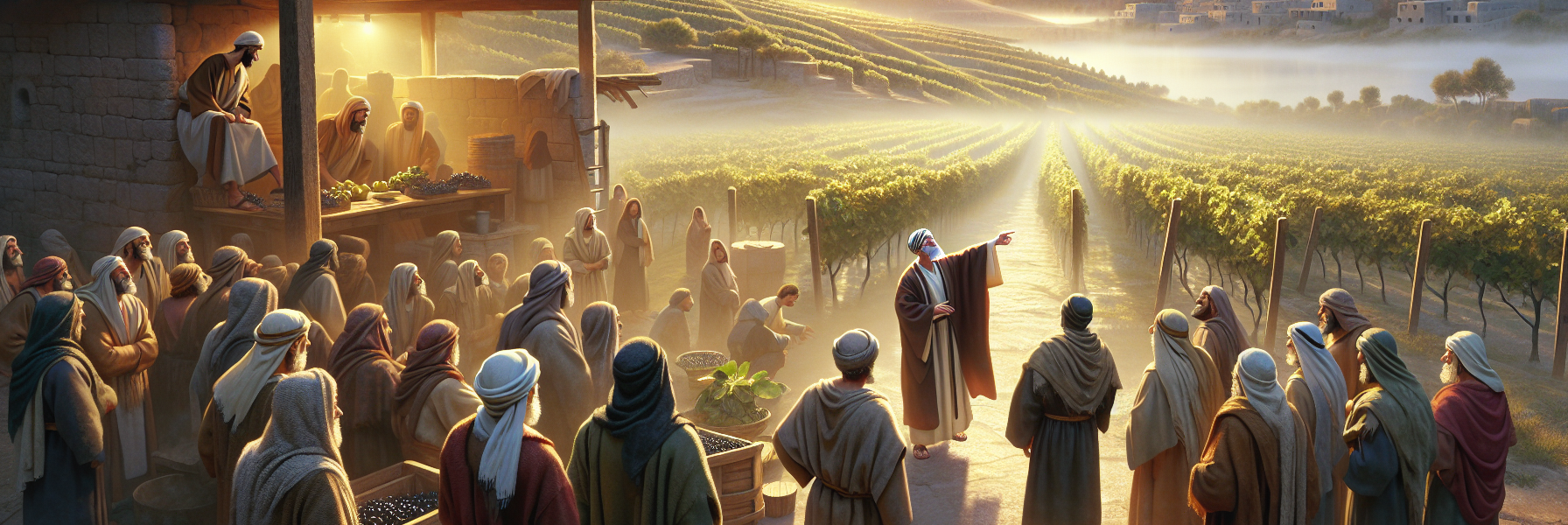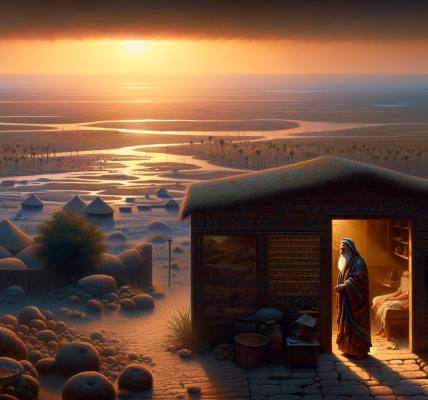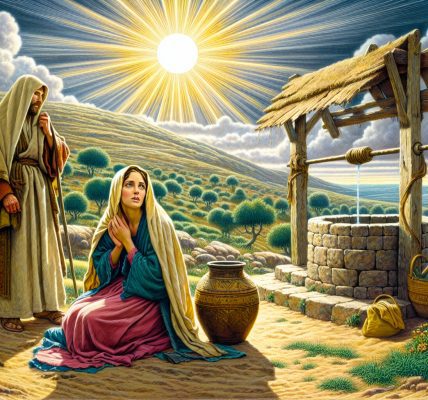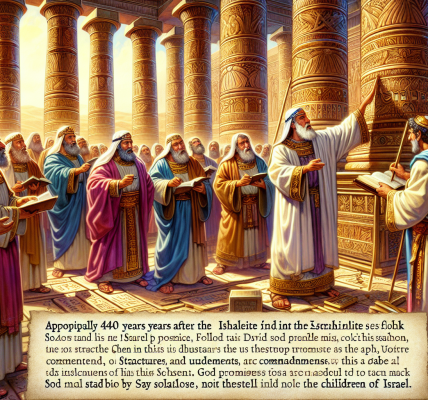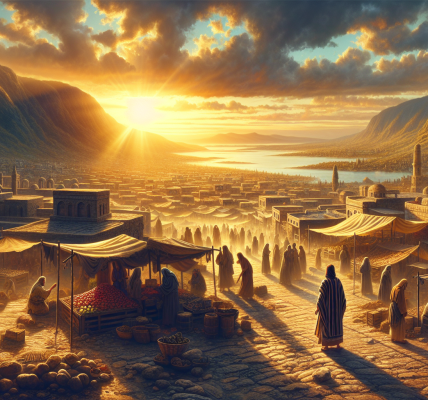**The Parable of the Workers in the Vineyard**
The sun had just begun its ascent over the hills of Judea, casting golden rays across the dew-kissed vineyards. The marketplace of a small village stirred to life as laborers gathered, their calloused hands idle, their eyes hopeful. Among them was Ezra, a man whose shoulders bore the weight of many seasons—some plentiful, others lean. Today, like many days before, he stood waiting, praying for a master in need of strong arms to tend his vines.
Just as the first light painted the sky, a landowner approached. His robes were fine but dusted with the earth he so loved, and his eyes held both kindness and authority. “You there,” he called to the waiting men, “come work in my vineyard. I will pay you a denarius for the day’s labor.”
Ezra’s heart leapt. A denarius—a fair wage, enough to feed his family for a day. Without hesitation, he and the others followed the landowner to the sprawling vineyard, where rows of vines stretched toward the horizon, heavy with clusters of unripe grapes. The morning air was cool, and the men worked with vigor, pruning, digging, and tending the soil as the landowner directed.
**The Third Hour**
As the sun climbed higher, the landowner returned to the marketplace. There, he found more men standing idle. “Why have you been here all day without work?” he asked.
One of them, a younger man named Levi, shrugged. “No one has hired us.”
“Then come,” said the landowner, “and work in my vineyard. Whatever is right, I will give you.”
Levi and the others hurried after him, grateful for the chance. Though they had missed the early hours, they labored diligently beneath the mounting heat.
**The Sixth and Ninth Hours**
Again, at noon and then in the mid-afternoon, the landowner went out. Each time, he found men waiting—some weary from standing, others discouraged. To each group, he offered the same invitation: “Go into my vineyard, and I will pay you what is fair.”
By the time the eleventh hour came, only a few stragglers remained in the marketplace—old men, their strength waning, and youths too inexperienced to be chosen first. The sun now hung low, painting the sky in hues of amber and violet.
The landowner approached them. “Why have you stood here idle all day?”
One of the elders, his voice thin with age, replied, “Because no one has hired us.”
The landowner’s gaze softened. “You also, go into the vineyard.”
**Evening and the Reward**
When the last light faded, the foreman called all the workers to receive their wages. To the surprise of those who had toiled since dawn, the landowner instructed his steward to pay the last workers first.
Ezra watched as the men who had worked only an hour stepped forward. Each received a denarius—a full day’s wage! Murmurs spread among the early workers. If these latecomers were paid so generously, surely they would receive more.
But when Ezra’s turn came, he too was given a single denarius. His brow furrowed. “Master,” he said, “these last men worked but one hour, yet you have made them equal to us who bore the burden and heat of the day.”
The landowner’s voice was gentle but firm. “Friend, I am doing you no wrong. Did you not agree to work for a denarius? Take what is yours and go. But if I choose to give to the last the same as to you, is it not lawful for me to do what I wish with what is mine? Or is your eye envious because I am generous?”
Ezra stood silent, the coin heavy in his palm. The truth settled upon him like the evening shadows: the master’s generosity was not measured by hours or labor, but by his own goodness.
**The Kingdom’s Way**
As the workers dispersed, some grumbling, others marveling, Jesus turned to His disciples, who had witnessed the scene. “So the last will be first, and the first last,” He said. “For many are called, but few are chosen.”
The parable lingered in the air, a divine mystery unfolding. In the Kingdom of Heaven, grace does not bow to human calculations. The Master’s love is boundless, His mercy unearned. Whether one serves from dawn or answers at dusk, the reward is the same—not by merit, but by the boundless generosity of the One who calls all to His vineyard.
And so, beneath the vast Judean sky, the disciples understood anew: God’s ways are not man’s ways, and His grace, like the vineyard itself, is ever abundant, ever free.
